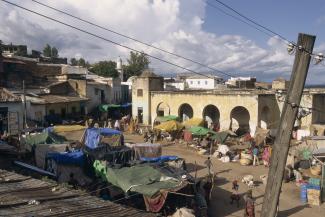Public finance
Patriotic funds

More than 140 million Africans live abroad. The African Development Bank (AfDB) reckons that they save $ 53 billion annually, of which they send $ 40 billion home – mostly to private households. Even though many of them would be interested in boosting their home country’s development, financial markets hardly offer them any specialised investment opportunities. In this context, the AfDB considers Israel, India and Ethiopia models because they have issued “Diaspora bonds”.
In a recent publication, the multilateral institution draws conclusions for other sub-Saharan countries:
- Governments do well to consider the investment needs of the Diaspora, but they should not exclude other investors.
- Governments should service debts dutifully even if they know that Diaspora members consider them with sympathy. Africans who live abroad, however, tend to be well informed, understand risks and are prone to withdrawing money if need be.
- Diaspora bonds should be used to fund measures that are important for national development, including infrastructure, cultural heritage or new housing, all of which provide incentives for more private-sector investment.
- The example of Israel shows that it makes sense to have rating agencies assess bonds since that builds trust among investors.
African model
The AfDB advises governments to check five questions before embarking on Diaspora bonds:
- What is the financing need? Bonds that are linked to specific projects are particularly promising. To attract investors, however, governments must prove they are worthy of credit.
- What is the Diaspora’s financial clout? Governments need data on the Diaspora’s education, income, savings, investment patterns and transfer modalities.
- How does one reach out to the Diaspora? Governments have to find out how to best contact their citizens abroad.
- Can bonds be managed properly? To successfully issue bonds, a country needs the rule of law and a sound macroeconomic setting. Investors have to be able to assess whether a country is worthy of credit or not, and they must understand the economic perspective. Many Africans will buy bonds if they believe their country is likely to develop. Good governance, transparency and political stability are crucial issues.
- How are the bonds designed? Relevant issues include duration, interest rates, volume and currency. If early repayment is an option, there is more flexibility. Tax bonuses and other subsidies, moreover, can make bonds more attractive.
The AfDB considers Diaspora bonds an interesting option in public finance management. It points out that banks should help governments issue such bonds with the goal of funding national development.
Annika Manz







